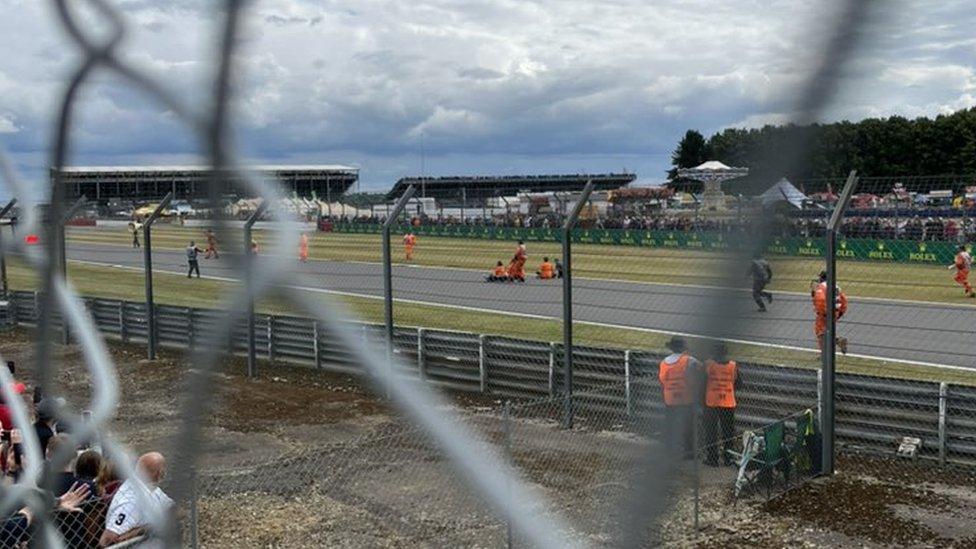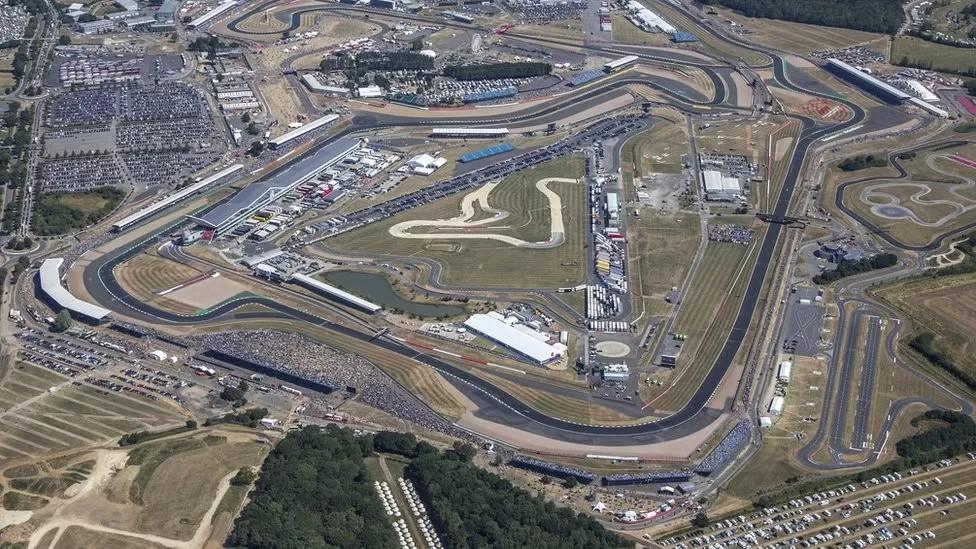F1 British Grand Prix: Silverstone track invasion 'safe', protester tells court
- Published

Protesters invaded the Silverstone track at the beginning of the Formula 1 British Grand Prix
A man who invaded the track at the start of the F1 British Grand Prix studied the sport's rulebook and videos of previous races to make his protest as "safe" as possible, a court heard.
The invasion by climate activists from the Just Stop Oil group took place at Silverstone, Northamptonshire, in July.
Louis McKechnie told Northampton Crown Court the group planned to "bait out" a red flag.
He and five others deny causing a public nuisance at the circuit.
The defendants are Mr McKechnie, 22, of Manchester, David Baldwin, 47, of Stonesfield, Oxfordshire; Emily Brocklebank, 24, of Yeadon, Leeds; Alasdair Gibson, 22, of Aberdeen; Bethany Mogie, 40, of St Albans, Hertfordshire; and Joshua Smith, 29, of Lees, Oldham.
Mr McKechnie said he felt completely safe before being dragged away by a marshal and argued the protest had not been dangerous.
He said planning for action at the track began around two-and-a-half months before the race.
The defendant told jurors: "It started off as Zoom calls and group texts and sometimes in-person meetings.
"Then we went [to Silverstone] in-person to see it and spent a day there."
He said he read the Formula 1 rulebook and "watched every single race that's been held at Silverstone over the last 20 years".

The court was told the protestors sat down in front of Formula 1 cars at Silverstone Circuit
Mr McKechnie said: "The part of the track that we went on had a much lower proportion of crashes than other parts of the track."
He told the court the group has planned the protest "to be as safe as possible".
Asked about the allegation that he had created a risk of serious harm, Mr McKechnie said: "I think it's completely false.
"Those drivers are the best drivers in the world. They would not even have flinched at something like this."
During cross-examination, Mr McKechnie was asked if he conceded the possibility his actions had been dangerous.
He replied: "No. I concede that it might have looked dangerous to someone who doesn't know about this stuff in great detail."
The trial continues.

Find BBC News: East of England on Facebook, external, Instagram, external and Twitter, external. If you have a story suggestion email eastofenglandnews@bbc.co.uk, external
- Published25 January 2023
